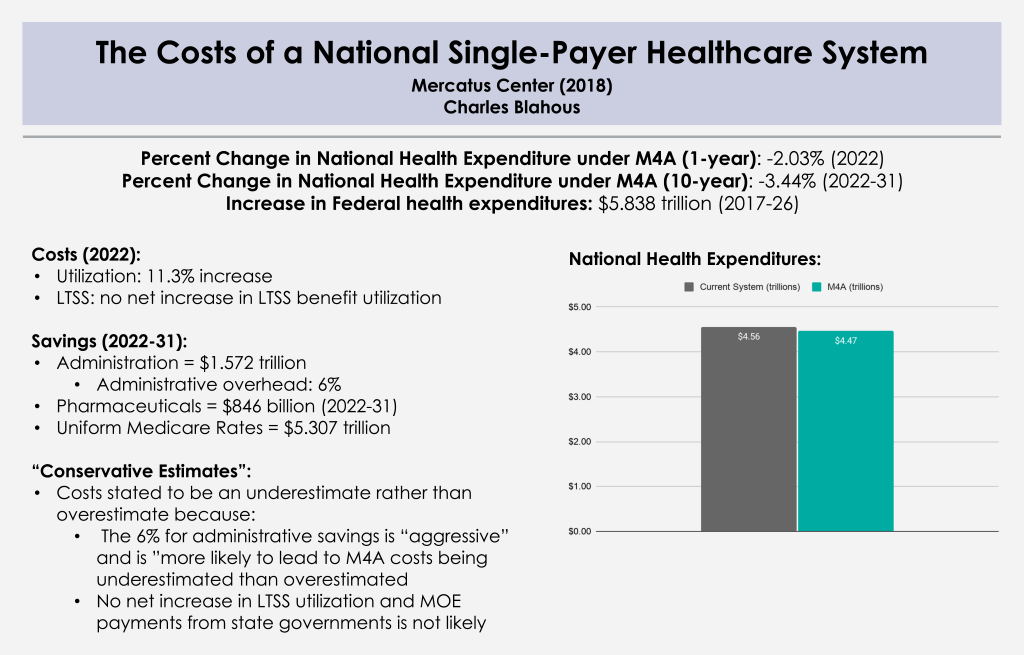Title: The Costs of a National Single-Payer Healthcare System
Year: 2018
Authors: Charles Blahaus
Institution: Mercatus Center
Funding Source: Koch
Plan Analyzed: S. 1804 Medicare for All Act of 2017
Percent Change in National Health Expenditure under M4A (1-year): -2.03% (2022)
Percent Change in National Health Expenditure under M4A (10-year): -3.44% (2022-31)
Increase in Federal health expenditures: $5.838 trillion (2017-26)
Read Study:
The Costs of a National Single-Payer Healthcare System
Study Abstract:
The leading current bill to establish single-payer health insurance, the Medicare for All Act (M4A), would, under conservative estimates, increase federal budget commitments by approximately $32.6 trillion during its first 10 years of full implementation (2022–2031), assuming enactment in 2018. This projected increase in federal health care commitments would equal approximately 10.7 percent of GDP in 2022, rising to nearly 12.7 percent of GDP in 2031 and further thereafter. Doubling all currently projected federal individual and corporate income tax collections would be insufficient to finance the added federal costs of the plan. It is likely that the actual cost of M4A would be substantially greater than these estimates, which assume significant administrative and drug cost savings under the plan, and also assume that health care providers operating under M4A will be reimbursed at rates more than 40 percent lower than those currently paid by private health insurance.
Overview:
- The Mercatus Report focuses on national health expenditures (NHE), but places particular emphasis on federal health expenditures.
- The Report focuses on:
- An overview of the findings and rationale for why Blahaus believes his estimate is an “underestimate”
- Detail Increased Demand and Utilization assumptions and Long Term Services and Supports (LTSS)
- Savings from Provider Payment Reductions, Drug Costs, Administrative Savings. Blahaus underscores that all of these savings will likely not be achieved because his estimates require a perfect transition from policy to practice. (Administrative Tasks, Prescription Drug Negotiation, etc) operate their optimal capacity/efficiency
- Effects on NHE and the Federal Budget, expressing skepticism about financing plans despite not laying out any particular financing plans
- Appendix with Financial Effects of different scenarios under Medicare for All
PNHP Response:
PNHP co-founders Drs. David Himmelstein and Steffie Woolhandler critique the Mercatus reports as “ideology masquerading as health economics.”
